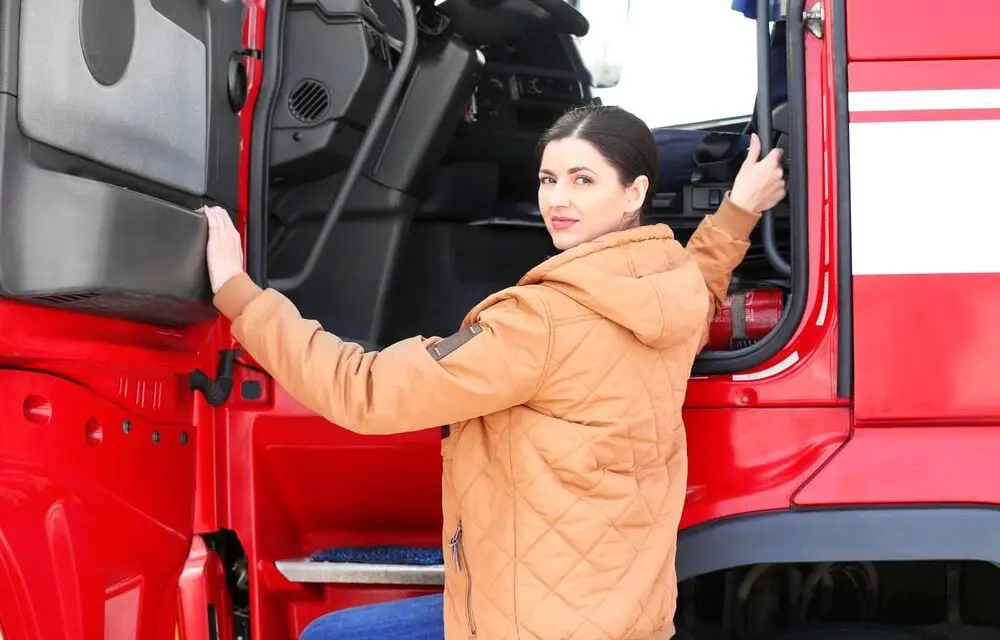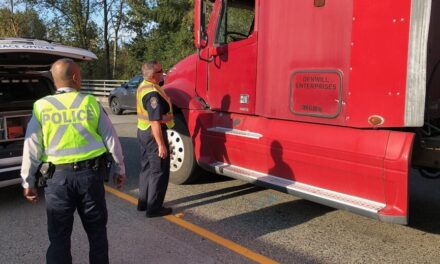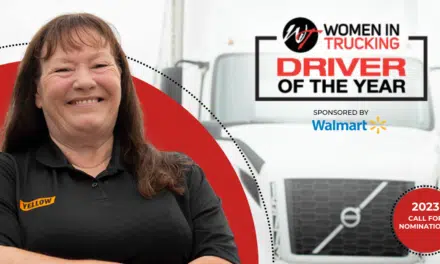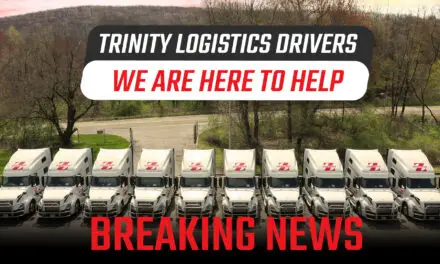Emina Nilsson is a very outgoing person. So when the chance to drive a truck for a living arose in her home country of Sweden, she didn’t jump at it. Sitting behind the wheel by herself all day? Not exactly her definition of a good time.
She told Z Transportation Blog, “I never saw myself as the kind of girl who would drive a truck.”
This, however, was not your typical diesel truck. Instead, she’d be driving an electric truck for Einride, a Stockholm-based autonomous and electric trucking company.
Using the electric truck, she will have only one path and a maximum of four loads. Diesel trucks usually have more exits and rounds to transport to. Nilsson said she likes having the freedom to prepare her day and take on extra loads if she has the opportunity, as well as having time to chat with coworkers.
There’s still another advantage.
Since diesel trucks are more unpredictable, “running an electric truck is much less stressful than driving a diesel truck,” according to Nilsson.

She went on to say that becoming an electric truck driver in 2019 is the greatest decision she’s ever made. Nilsson described driving electric trucks, meeting with customers, and becoming a member of the truck driver community as “a lot of fun.”
She isn’t the only one who feels this way.
Einride conducted a survey to learn more about women’s perspectives on a career in trucking and how environmental and technical factors such as autonomous trucking and artificial intelligence influenced their interest (AI).
According to Einride, 45 percent of women surveyed showed interest in a career in autonomous trucking.
In an interview with Z Transportation Blog, Linnéa Kornehed, co-founder and chief marketing officer at Einride, said, “We see that there is a [gender] gap, and we want to help close it.” In February, 1,005 Swedish professionals were surveyed, with women accounting for 56 percent of the total.
The survey, according to Kornehed, was just the beginning of an effort to better understand Einride’s target audience and inspire more women to work in the trucking industry.
Could technological advancements result in more women entering the trucking industry, safer highways, and fewer trucking capacity constraints?
According to Kornehed, having a more inclusive, fair representation of men and women in the workplace will contribute to improved work cultures and success. Women are also better drivers, according to research. Men are 88 percent more likely than women to have a reckless or incompetent driving conviction, 78 percent more likely to have a seat belt violation, and 20 percent more likely to be involved in a collision, according to a 2018 report conducted by the American Transportation Research Institute (ATRI).
52 percent of women who said they were not interested in a trucking career said they would reconsider if they could drive autonomously. A quarter of the women polled said they would go to college if it meant they could work as an autonomous truck driver.
According to the survey, 58 percent of female respondents are interested in learning new skills that will allow them to work in the AI industry.
“Women should have a voice and an equal opportunity to shape the future, just as they should in any new technology. “This is our chance to shape the future we want to see,” Kornehed said.
According to data from the US Department of Labor, women made up just 7.8% of the 3,364,000 total truck drivers on the road in 2020.
The need for more truck drivers was ranked first in the ATRI Top Industry Issues report for 2020. Some older truck drivers are retiring, while others are leaving the industry due to health issues related to the COVID-19 pandemic, according to the ATRI.
As a tactic to combat this problem and potentially increase driver safety, ATRI suggested raising the number of women and minority truck drivers.
Approximately 58 percent of Einride survey respondents were between the ages of 18 and 39, with 45 percent of women indicating that they would be involved in a career in autonomous trucking. This suggests that young people, especially women, may be able to help relieve pressure on truckload capacity.
While becoming a female truck driver in a male-dominated industry can be challenging, Nilsson believes that more people are willing to assist her if she wants guidance or has a problem. She said, “People are really extremely generous.”
However, 37% of those who said they were not interested said they didn’t know enough about the industry to know if there were any career opportunities that they would be interested in.
In a tweet, Lisa Lisson, president of FedEx Express Canada, said, “I would like to see Canada’s shipping, logistics, and supply chain industry proactively inspire women to pursue the exciting opportunities we offer.”
Kornehed was pleasantly surprised to learn that in the Einride survey, 48 percent of women said they would consider a career in trucking if they knew it would benefit the climate. She said, “I think that is just beautiful to see.”











